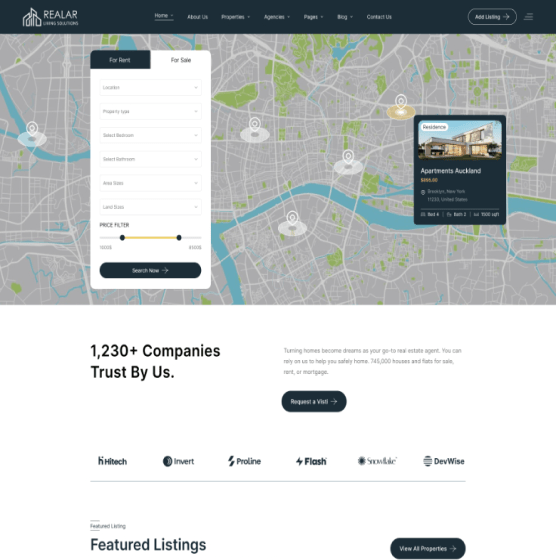What to Do If a Buyer Tries to Negotiate After Inspection The Truth About Post Inspection Negotiation FSBO
As a homeowner, the journey of selling your property can be exhilarating yet filled with challenges. One of the most significant hurdles often arises after a buyer’s home inspection. Negotiations can seem daunting, but knowing how to handle these situations can make a substantial difference. In this post, we’ll discuss essential post inspection negotiation FSBO tips you need to know to turn this situation in your favor.
Understanding the Buyer’s Perspective
Firstly, to effectively handle negotiation FSBO, it’s crucial to understand why buyers may want to negotiate after an inspection. A home inspection provides buyers with critical insights into the property’s condition, covering everything from structural issues to plumbing concerns. If any problems arise during this inspection, they may feel justified in asking for repairs or price reductions.
Common Inspection Findings
- Electrical issues
- Roofing problems
- HVAC system inefficiencies
- Plumbing leaks
- Foundation concerns
Each of these issues can lead to a potential reduction in the home’s value, making negotiation necessary. Understanding this can help you respond tactfully and effectively.
Tips for Navigating Post Inspection Negotiation FSBO
When handling negotiation FSBO, the following tips will equip you to manage post-inspection negotiations successfully
1. Stay Calm and Positive
The first step in handling any negotiation is maintaining a calm demeanor. This situation calls for emotional intelligence. Show empathy towards the buyer’s concerns while remaining assertive about your property’s worth.
2. Review the Inspection Report Thoroughly
Obtain a copy of the inspection report and go through it methodically. It’s essential to understand what the report says and how it reflects on your property. This is a critical foundation for your arguments during negotiations.
3. Prepare Your Responses
Once you know the findings, prepare responses for each item. For example
- Minor repairs? Likely worth addressing to close the deal.
- Major issues? Consider getting quotes for repairs to ascertain costs.
- No issues? Stand firm about your asking price or present your counter-offers.
4. Consider Your Bottom Line
Before entering negotiations, know your bottom line. Determine the least you are willing to accept, structurally and financially. Being aware of your limits will empower you during discussions, helping you recognize non-negotiables.
5. Communicate Transparently
Open dialogue with the buyer can foster trust. Transparency allows you to address concerns directly, leading to productive conversations. If you’re not willing to make certain concessions, explain why.
6. Discuss Repair Options
If major issues arise, discuss repair options upfront. You can offer to fix issues or consult with a contractor for estimates. Some sellers even provide a repair credit. This can show good faith and assist in finalizing the deal.
When to Stand Firm
While negotiation is essential, there are times when standing firm is equally crucial. Recognizing when to hold your ground will prevent you from overselling your home.
Signs to Stand Firm
- The inspection reveals routine maintenance items.
- The property is priced competitively overall.
- You have other interested buyers or backup offers.
If you find yourself in one of these situations, it may not be necessary to budge much on negotiations. Just remember to maintain professionalism to keep the lines of communication open.
Negotiation Strategies for a Successful outcome
Implementing effective negotiation strategies can strengthen your position as the seller while ensuring that you and the buyer reach a mutually satisfactory agreement.
Counter-Offer Wisely
If the buyer makes an initial offer post-inspection, evaluate it carefully. A counter-offer is expected; the key is to do it wisely. Your counter should reflect your firm stance while also demonstrating willingness to compromise on minor issues.
Be Mindful of Timing
Timing is critical in any negotiation. If a buyer shows strong interest, give their requests prompt attention. This demonstrates that you’re serious about closing the deal while potentially minimizing stalling in discussions.
Documentation is Key
It’s crucial to keep documentation of all communications regarding negotiations after the inspection. This could prove invaluable in case of disputes later on. Clear, written records can help you track agreements, repairs, and modifications to the contract.
Final Thoughts You Are Not Alone
Managing the post inspection negotiation FSBO process can be complex, but with these tips, you can confidently engage in discussions that benefit you and your buyer. Remember that negotiating is part of the selling process.
To sum up, whether you’re new to the FSBO market or you have a seasoned history, these strategies are essential for a smoother transaction. Utilize your support network, ask questions, and even seek advice from real estate professionals if needed. You’re not alone on this journey!
Ready to navigate your FSBO journey? Visit us at Agentless Deals for more insights!
‘, Ready to navigate your FSBO journey? Visit us at Agentless Deals for more insights!










